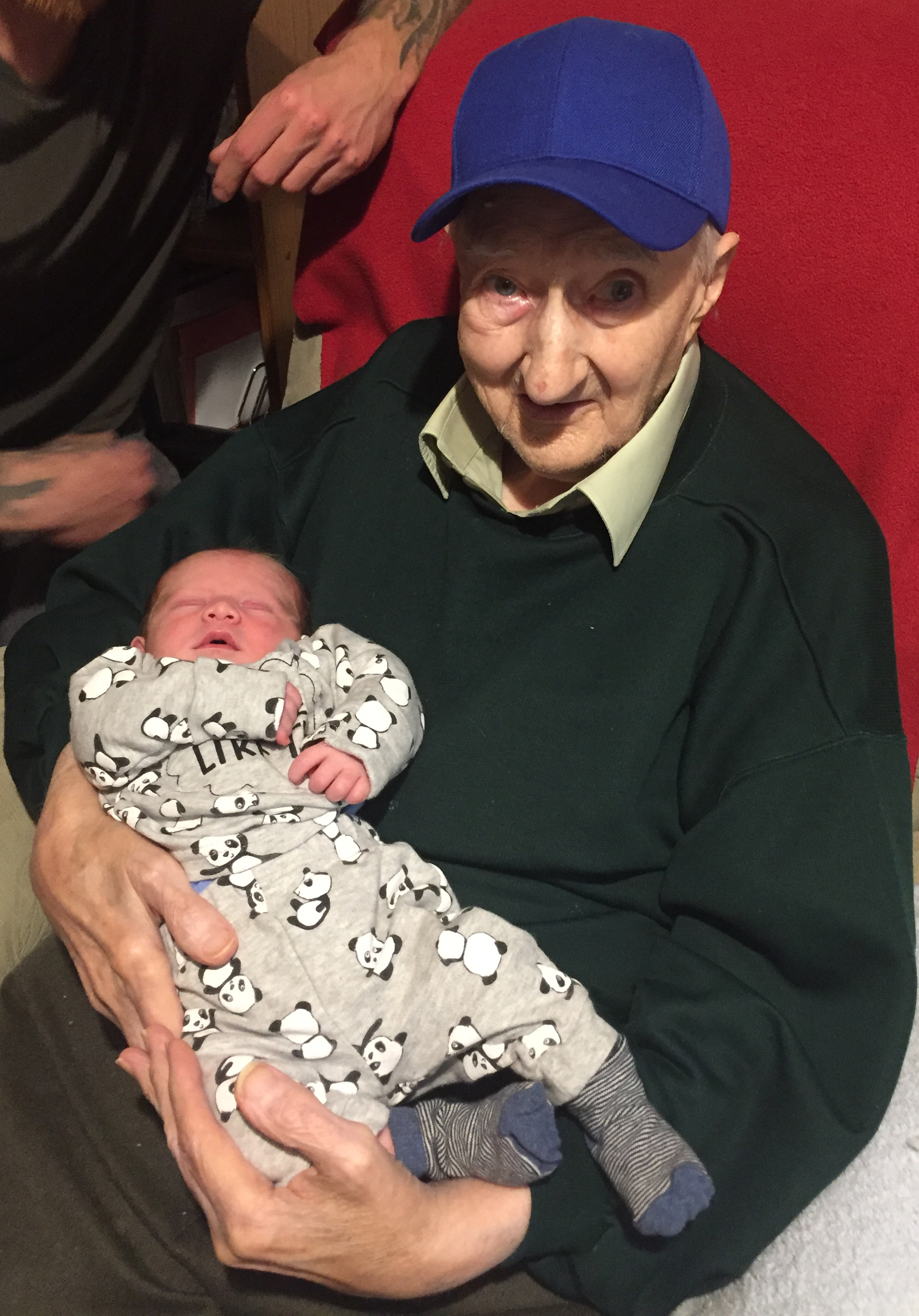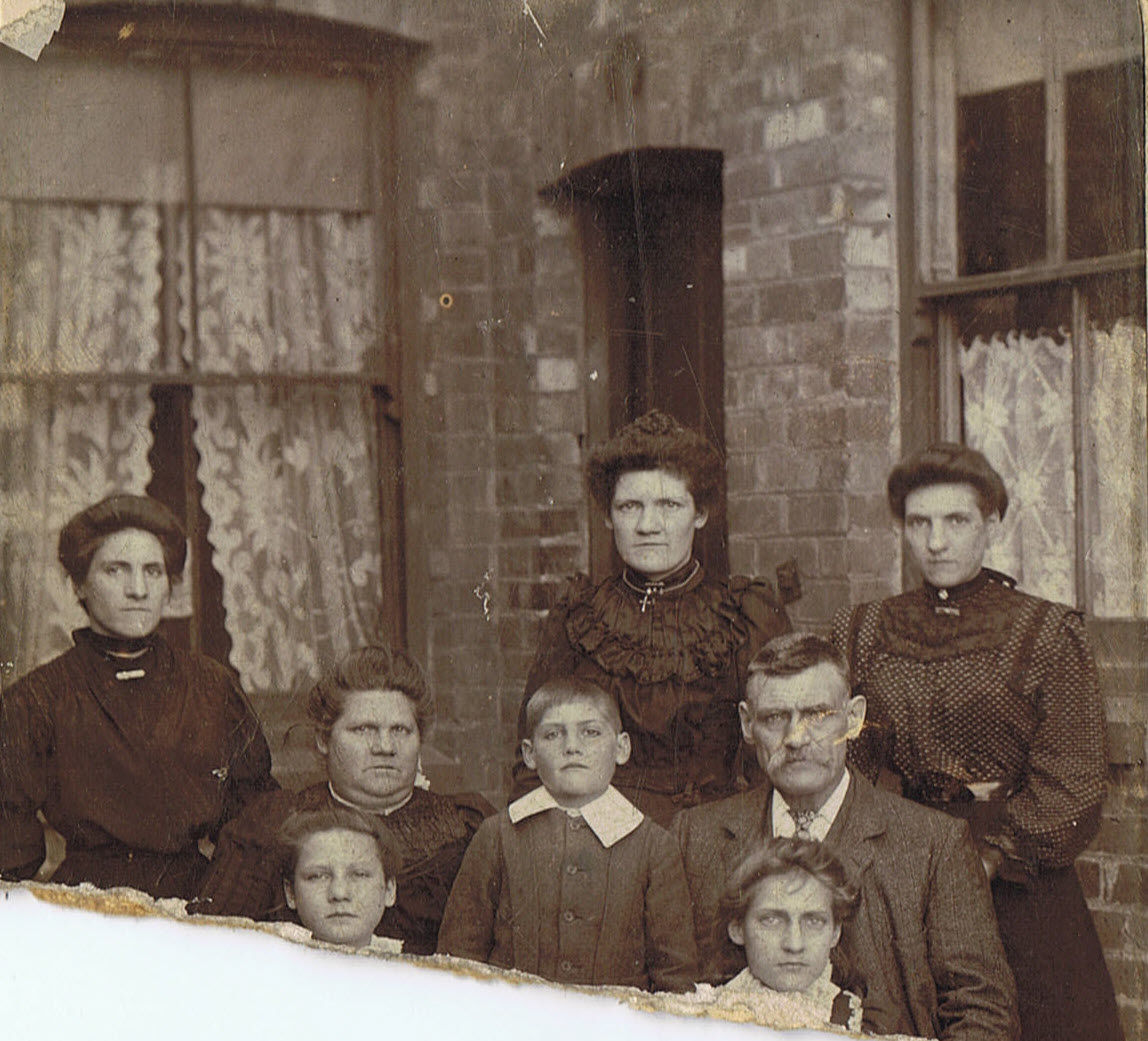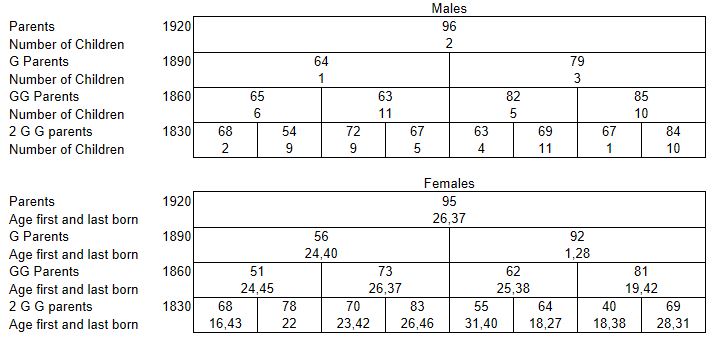How long do you expect to live?

97 years separates them.
It's a good question, but the answer is not so easy.
One reasonable guide is how long your ancestors lived. If your parents are still around, and in their late 90s, like mine, you can hope for a long life. If they left this world of natural causes at 50 then it might be a good idea to start making the most of your time up to that age.
Lots of things might affect your life expectancy, like your living environment, job and hereditary illnesses.
I think we were all under the impression that people in the 19th and 18th centuries lived relatively short lives compared with today. So, using the information in my family tree, I decided to see if I could spot a trend.
I looked at when they were born, when / if they married and of course, when they died. I also know they all lived within a 20 mile radius of my home now, and for most part, I also know what jobs they did.

My Great Grandparents and a few of their 11 children
Knowing it was common to have lots of children at one time, I also looked at how many they had, and at what age the birth took place (the parent, not the baby, that one is easy to work out).
My data
The first thing I did was find out the average age for 4 generations. That's a starting date of around mid 1800s.
Males averaged 71.87
Females 69.13
Generation average ages.
Parents. late 90s and still going.
G Parents. Male 71.5, Female 74
GG Parents. Male 73.75, Female 66.75
GGG Parents. Male 68, Female 65.87
So, life expectancy on average does increase, but when you look at the conditions they lived in 150-200 years ago, and the fact they were still working into their 70s, (at least one into his mid-90s) it hasn't drastically improved.
The size of families are much smaller now, and for the females it has not made much difference to age at death.
In my 4 generations, the average number of children were:
Parents 2
G Parents 2
GG Parents 8
GGG Parents 6
Most didn't have a first child until after the age of 24, and continued up to the age of 46.
The 3 that had children in their 40s all lived to be over 80.
Out of the 30 individuals in this survey, only 2 re-married after the death of their spouse.
Job wise, they almost all either worked in the mines or local pottery. Some did frame work knitting and none had any money.
The first World War probably affects these results by reducing the male side of the family’s health and number of children.
Conclusion:
I should make it into my 80s and I hope to beat my parents.

